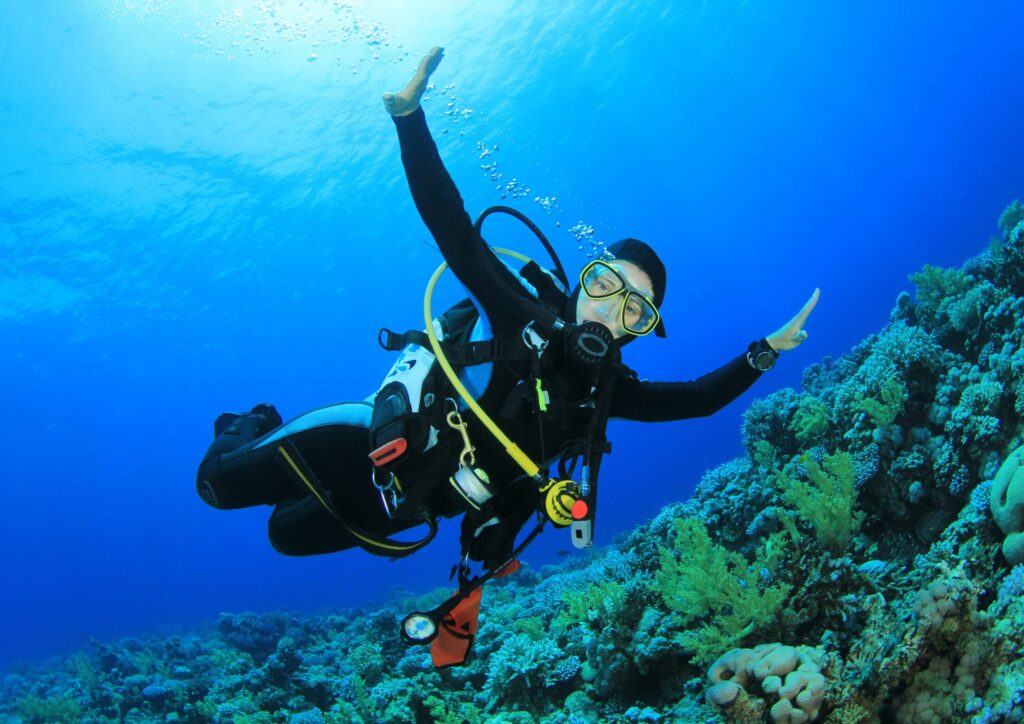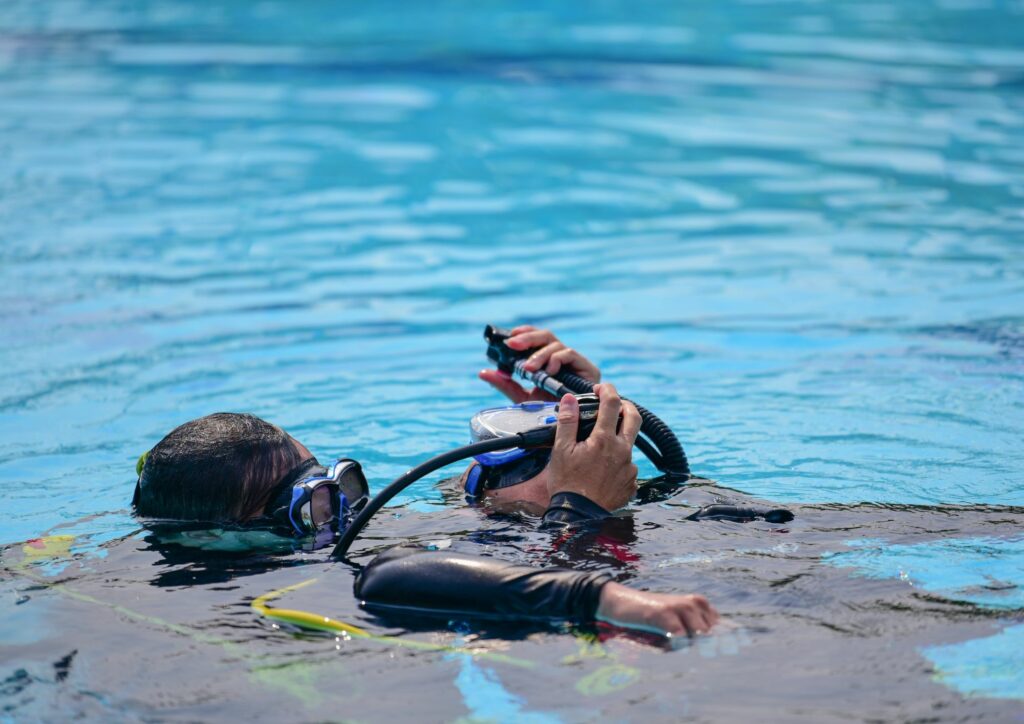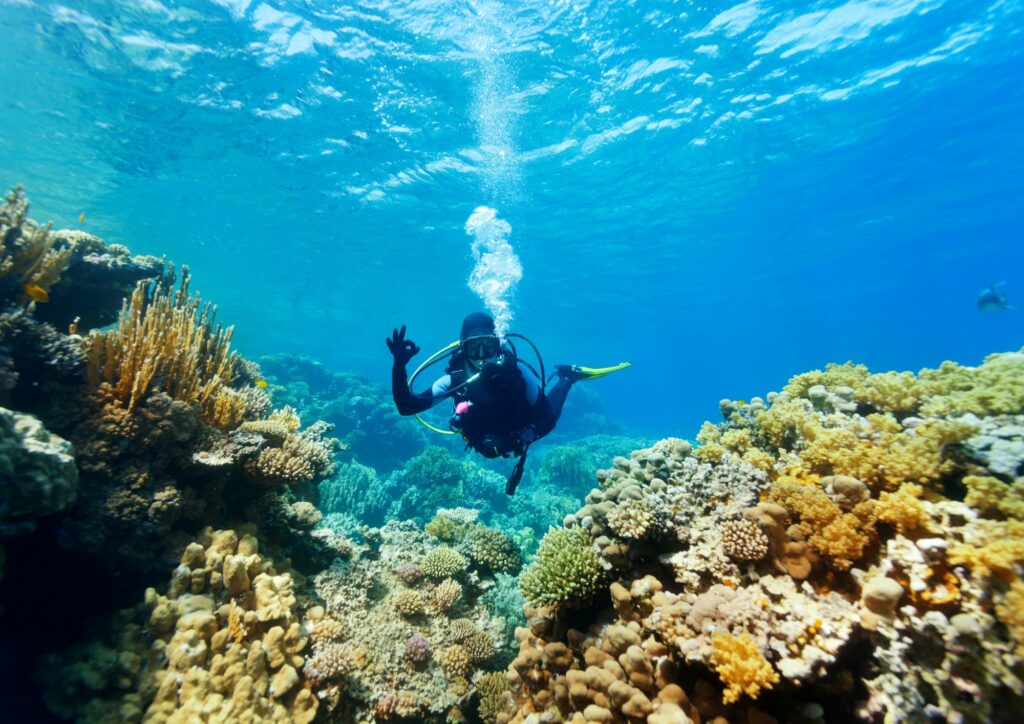Advanced diving techniques, rigorous scuba diving skills training, and certain distinctly essential master diver skills mark the line between casual explorers and seasoned divers. This piece delves into the must-know skills needed to not just claim the ocean floor, but to also earn your advanced dive certifications in style. Let’s plunge into the enigmatic deep together.

1. Master Diver Skills for Precision Buoyancy Control
Precision buoyancy requires in-depth skills to manipulate gravitational and buoyant forces, and to strike an optimal balance that allows you to adjust your depth and maintain the right ascension rate. This control further enhances your diving mobility and stability, which is particularly necessary in challenging undersea conditions. Mitigating factors such as water salinity, temperature, and diving gear can affect buoyancy, making control skills even more crucial. A mastery of buoyancy helps in air conservation, leading to prolonged dives and diminished exhaustion.
2. Advanced Navigation Techniques
Meticulous and strategic navigational capabilities play a major role in advanced diving. Proficient usage of navigation tools, interpretation of nature’s signs such as water current and sunlight direction, as well as the comprehensive understanding of the dive site’s layout are all part of this skill set. Inherent in this expertise is the capacity for visual reckoning, which involves tracking the changes in underwater route based on what is seen and experienced.

3. Emergency Protocols and Rescue Techniques
Expertise in advanced diving is not just about exploration; it also entails a high degree of responsibility. Preparedness for potential emergencies—and indeed, the ability to thwart them—forms an integral part of this. Divers should be capable of handling various underwater risks, from equipment malfunction to unexpected health crises. Emergency rescue techniques such as out-of-air situations, panicked diver treatment, and diver recovery should be fully mastered.
4. Deep Diving Competencies
Deep diving demands exceptional skill, resilience, and preparation. On top of technical proficiency, deep dives require physical and emotional endurance, adaptive techniques, and thorough knowledge about the potential risks and precautions. Advanced divers should be comfortable exploring depths from 18 to 40 meters, which might encompass challenging conditions such as darkness, pressure changes, and colder temperatures.
5. Master Diver Skills for Night and Limited Visibility Diving
Different underwater conditions can pose extraordinary challenges, one of which is limited visibility. During the night or murky waters, visibility can reduce dramatically, compromising the diver’s safety and navigation. Mastering night diving involves specialized methods and usage of equipment like dive torches, light signals, and luminous markers to safely explore the hidden, nocturnal marine world.
6. Sharp Observation and Marine Life Identification
An enriched diving experience includes observing and understanding the underwater biodiversity. Advanced divers need to develop keen sight to identify different marine species, apprehend their behavior, understand their patterns and habitats, and respect their existence. Awareness about marine life can potentially insulate divers from harmful interactions and conserve the oceanic environment.
7. Efficient Air Consumption

Efficient air consumption is a crucial aspect of advanced diving. Proper breathing techniques, controlled movements, and adequate level of fitness are basics to preserving air underwater. Understanding diving equipment functionality and maintenance will further prolong tank longevity. Not only does it guarantee longer dives, but also enhances comfort and reduces potential safety risks.
8. Equipment Handling and Maintenance
Expertise in diving equipment is imperative to safe and successful dives. Knowing how to aptly utilize, troubleshoot, and maintain the gear results in optimal performance and longevity of the equipment. It includes basic maintenance like pre-dive checks and post-dive cleanups, to complex tasks like changing o-rings, repairing leaks, and ensuring regulator performance.
9. Mastering Dive Planning and Logging
Dive planning helps in recognizing and mitigating potential risks, ensuring the safety, and maximizing observation opportunities. It includes determining the purpose, location, depth, time of the dive, emergency plans, checklists, and other factors. A dive log is a record of a diver’s experiences, variables, and observations underwater, approving their diving skills and helping in further improvement of master diver skills.
10. Specialty and Technical Diving Abilities
Specialized areas of diving demand unique skills, sound scientific knowledge, and rigorous training. Cave diving, wreck diving, ice diving, mixed gas diving, among others, need divers to adapt to specific environments and scenarios. Each specialty has its own set of safety rules, equipment requirements, and techniques, and needs structured guidance for proficiency.
Venturing Beyond the Abyss: Concluding the Journey
The deep seas are a realm of fascination and awe, waiting to be understood and explored. The said skills feed into advanced dive certifications and are the staple of every diver who has truly mastered the deep. By upskilling and constantly seeking new technical diving abilities, one doesn’t merely dive in the ocean, they become a part of it.

I’m impressed by the depth of knowledge presented in this post. As an advanced diver myself, I can attest that mastering buoyancy, navigation, and rescue techniques is crucial for a safe and enjoyable dive.
Thank you for sharing your experience as an advanced diver! We’re glad to hear that our post resonated with you. Mastering buoyancy, navigation, and rescue techniques are indeed crucial skills for any serious diver. At Gill Divers, we emphasize the importance of these skills in all our courses and training programs. If you have any questions or would like to learn more about our advanced diving courses, please don’t hesitate to contact us at Tel: +65 6734 9373 or Email: [email protected]. We’d be happy to help you continue your diving journey.
I’m a total newbie to diving, but this post has inspired me to take the plunge (pun intended!). The tips on efficient air consumption and equipment handling are particularly useful for beginners like myself.
Dear Kavitha, Congratulations on taking the first step towards exploring the underwater world! As a newbie to diving, it’s great that you’re thinking about efficient air consumption and equipment handling. These skills are indeed crucial for any diver, regardless of their level of experience. I recommend starting with a beginner-friendly course or guided dive to get familiar with the basics. You can also consider reaching out to us at Gill Divers (Tel: +65 6734 9373, Email: [email protected]) for more information on our diving courses and services. Remember to always prioritize your safety and the well-being of others while diving. Enjoy your journey beneath the waves! Best regards, [Your Name].
I’m a bit surprised by the emphasis on night diving. While it’s true that limited visibility can be challenging, I think more attention should be paid to shallow water dives and marine life conservation.
Thank you for sharing your thoughts, Tan Wei Jie! We appreciate your unique perspective on the importance of night diving. While it’s true that limited visibility can be challenging, we understand where you’re coming from in emphasizing shallow water dives and marine life conservation. At Gill Divers, we believe that mastering buoyancy control is crucial not just for advanced diving but also for respecting and preserving marine life. We’d like to invite you to explore our marine life conservation programs and learn more about our initiatives to protect the ocean’s biodiversity. Feel free to reach out to us at Tel: +65 6734 9373 or Email: [email protected] to know more.